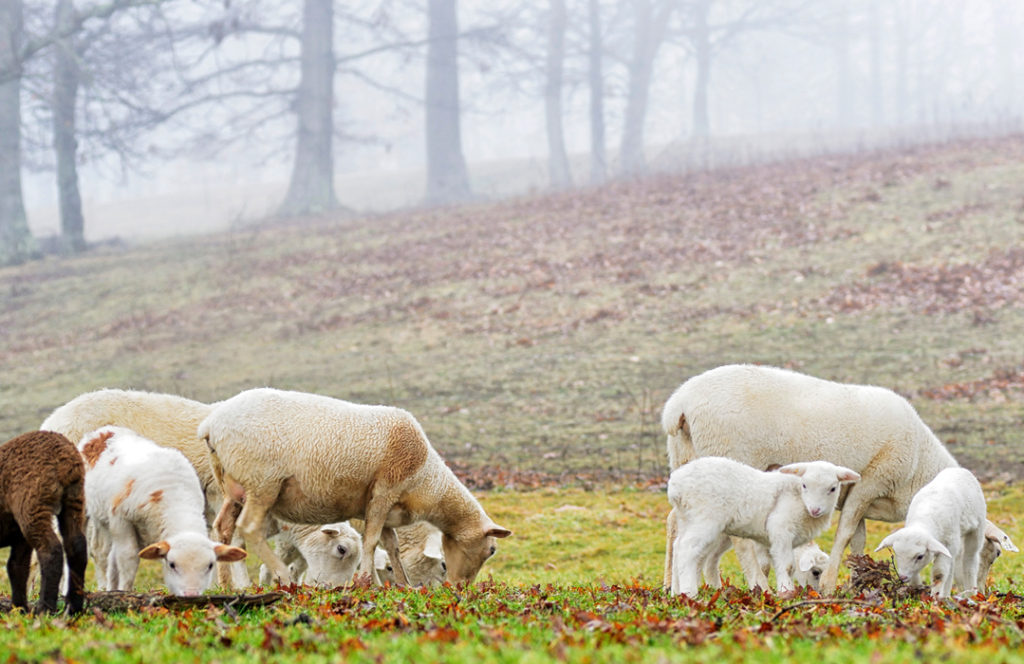My boyhood farm jobs started at age six with opening gates for my father to drive through in his 38 Chevy and spreading two-handful piles of salt at ten-foot intervals in hilltop pasture cow trails, then calling the stock in to savor it with, “Coo sheep, Coo, Soo Calf, Soo,” until they arrived on the run to lick the salt up and be counted and inspected. This job came every Sunday afternoon as my father, his friend Jack Atkinson, a fellow farmer and N&W Trainman, and I inspected the stock on both their farms. This job I loved.
A few years later my father began assigning to me real tasks to teach me the meaning of work and self discipline. One I remember with disdain was painting new pasture gates at about age ten I think. We had just sold some oak trees to be select cut off the wood lot at the back of the farm and the deal with the logger entitled us to some unplaned boards for fence gates.
My father had a half dozen twelve-foot gates made of the green, unplaned boards and assigned me the summer vacation job of painting them. Quickly I learned two unpleasant things. The gates were very heavy and sucked up paint like sponges. The weather was sunny and hot and the gates, as yet unhung, were not stacked in shade, making for misery for me as chief and only painter. I still hate painting.
Then came the Canadian thistle invasion and my job of hoeing them one by one from our bluegrass pastures. An impossible, unending job. That was my first lesson in the dangers of invasive species. Hay had been hauled into our country from Ohio due to prolonged drought, and the rectangular bales held lots of thistle seeds that took hold with a vengeance and spread on the breeze to lands of farmers who had imported no hay, making them understandably upset with hay-importing neighbors.
On my twelfth birthday my father bought a John Deere MT tractor, just introduced, on condition the dealer teach me to operate it. On the same day he retired our draft team, Maud and Bird, whom I had learned to ride holding their hames’ brass balls in my fists and feeling their warm withers on my short bare legs.
With the MT an early job was hauling rocks off our pastures, lifted to the surface by freeze and thaw each year. By hand I would first load the rocks on a flat chain-pulled sled built from the same green oak as the hated gates, then pull the sled to the barn to be unloaded to build a ramp to hold a tractor-pulled hay trailer to loft levels. This job I did not mind. It gave me a sense I was building muscle.
At age fourteen my father assigned to me and Mr. Harris, a neighboring retired dairy farm manager who had in retirement bought a small farm near us and become my farming mentor, the task of rebuilding a half-mile section of line fence. The old fence was covered in poison oak, and we decided to burn it. Big mistake. Before then I thought I was immune to poison oak. But smoke from the fence burn got in cuts on my face (I had just proudly started shaving) and spread the rash all over my face and neck, creating six weeks of pure misery.
A comical job error on my part still gives me laughs. A year before my father’s death at my age fifteen in 1954, we had a bumper crop of pumpkins. I was assigned the job of loading pumpkins on the sled and hauling them to Route 8 where they would be seen by passing traffic to aid their sale as Jack-O-Lanterns. Just after loading the sled to over capacity and as I drove the MT toward Route 8, a thunderstorm erupted and I made top speed to the shed where we parked the MT. Only after I had pulled the MT into the shed with the sled attached did I remember the sled could not be backed up. Just then my father arrived in his car, a 48 Dodge two-door with Fluid Drive, hauling my bag lunch prepared by my mother. He saw my predicament and broke into a hearty laugh. I joined. He never told anyone else of my stupid blunder, proof of his love for me.
A year later my father would be dead, victim of a car crash. My mother and I would continue to operate the farm until the end of my second law school year, when we sold the stock and cash rented the land to a dairyman neighbor. My mother continued to live on the farm with my sister until her death at 98. She loved the farm as my father and I did. And as my sister’s two sons who grew up there would come to love it.
My favorite farm jobs were making alfalfa hay, mowing, raking and hauling it in rectangular bales to our barn, and lifting and stacking those bales by hand into the loft. What a feeling of satisfaction was putting the season’s last bale in the loft. And tending the barn during lambing, from Christmas Eve through February, each night bringing a barn vigil til dawn, nothing to make one feel more worthwhile. You can see the scene on YouTube The Word Farm.
